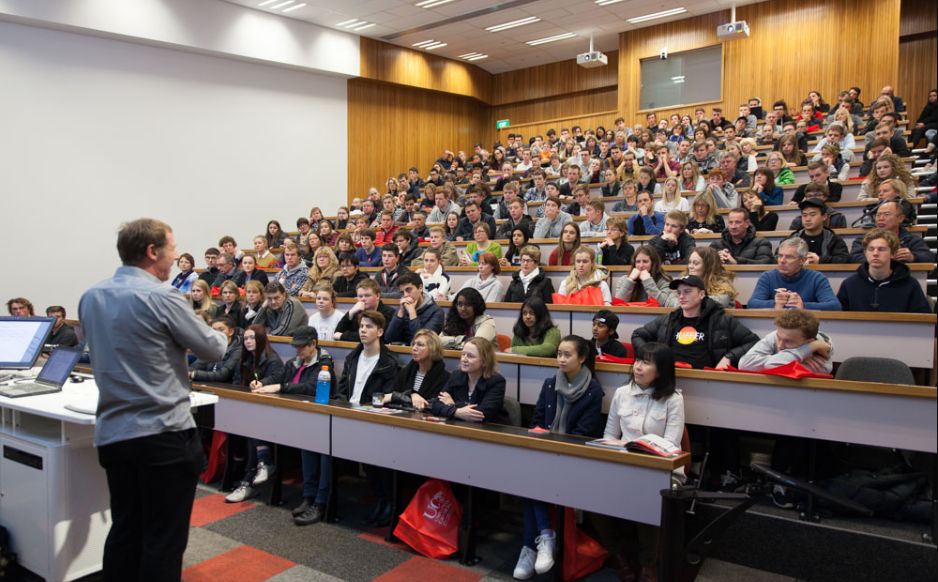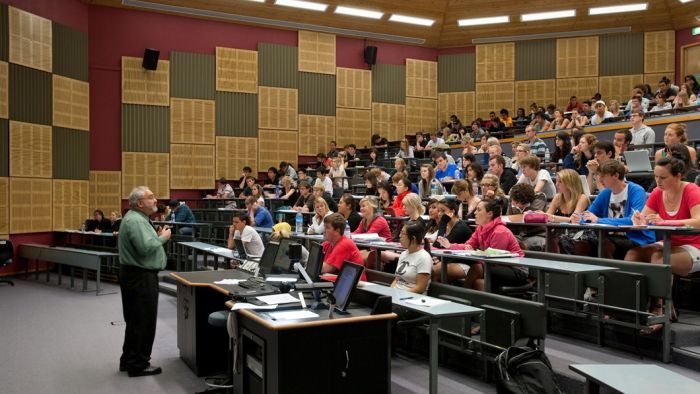It’s tougher now to become a university lecturer than it used to be fifty years ago, although it’s definitely easier than back when you couldn’t be a certain religion or have a family. In these competitive times, you have to be as professional about your career path towards a lectureship as a rocket scientist.
In other words, you need to have all the minimum qualifications that your peers have. If you want to follow the path trodden by most academics, then there’s no question you’ll need a bachelor’s degree. A few hundred years ago it may have been enough to express an eagerness to teach college kids – and it always helped if you had a contact at the university you wanted to lecture in.
But times have changed. If Einstein was born today, he’d probably be diagnosed with Asperger’s syndrome. If you want to be a lecturer today, you need to follow a trajectory to get you to your goal along the path of least action, as the physicists say. By this, we don’t mean you don’t have to work hard. But if you do follow the typical career trajectory, you will have an easier time of it.
Here’s what you need to do to become not just a lecturer, but to land a permanent lectureship position.
Earn a Masters, and a PhD
Aim for a PhD if you want to be secure in your job. You need a good bachelor’s degree of course before you can apply for a good Masters. A score of 2.1 and up in your Bachelor’s is considered good if you’re studying in the US.
Some US universities – such as smaller religious-affiliated colleges – may allow you to lecture at a university with just your master’s degree (such as the Princeton Arts Fellowship.) Many Masters students do teach throughout their program. But you need to have plenty of teaching experience before you’ll land such a position.
Also, you should note that all the full-time jobs would most likely go to candidates with Masters degrees. There also tends to be confusion about the student TA (Teaching Assistant) position. It is not a regular professorship but you can see a TA as being a kind of apprentice. After you graduate, you’ll have to apply with a hundred other TAs for academic jobs that you’re eyeing. The competition is not easy.
You can narrow down your competition to a great extent by getting a PhD in your chosen field. If you publish a few papers in peer-reviewed journals, it’s all the better for you.
The bottom line is, you could potentially teach with a Masters’ degree in some state and community colleges but a PhD will definitely make your life (and hiring chances) easier. And while you’re doing your PhD, you should be working on how to make the most of your time developing your hire ability.
Develop your Experience in a Focused Way
While you’re working on your PhD, or even earlier, you may find there’s a certain kind of job you’re eyeing. You’ll need to find out whether teaching or research has more emphasis on the job. Since time is precious, you’ll want to tailor your experience-collecting stages to one of these two aspects of academics.
The same kind of position may have different requirements across institutions. To take an example from historic academicians, we can consider Albert Einstein. He had teaching duties even on his research positions at institutions across Europe, until he went to America. There, the Institute for Advanced study absolved him of any responsibilities to teach, something he felt ambiguous about.
How do you pick up teaching or research experience? During your Masters and PhD, you may come across opportunities – or actively look for them – to do some departmental teaching in the form of tutorials or seminars. These positions usually have hourly pay.
You may also have to mark exam scripts and essays, which will all add valuable experience in preparation for the permanent lectureship. We highly recommend taking on any job offer, because the teaching experience you gain will be invaluable for your future.
Develop your Research Experience
Your three to four year PhD will provide the bulk of your research experience, so you must make the most of it. Even if your position is research-based, you need to be able to communicate your ideas to students, colleagues and peers at conferences and workshops.
Many PhD students also publish papers almost as soon as their PhD is over. This is a surefire way of getting your research out there, and of increasing your chances of landing a full-time lectureship.
Be Prepared for a Wait
When you’re done with your PhD, you’ll be ready to hit the job market. But you may find that there’s nothing available. You may have to teach part-time to make ends meet or pay off your student loans. You could take on hourly jobs or temporary contracts. All such jobs will add to your experience, so make sure to include these on your CV. Work with dedication and positivity so you don’t end up demoralized.
While you wait, use your network to your advantage. By this stage (if you have been diligent enough) you may have built up a rapport with university colleagues and you PhD supervisor. They should be able to point you towards any jobs that they come across. Jobs in academia are still often made available through word of mouth.
Depending on where you’re from, your university may still have to publish an ad for the job, after they’ve already chosen you as their internal candidate.
If you can make it in academia, you’ll find yourself in a prestigious field with huge competition. Stay positive, always keep your goals in sight, and don’t let the lull after years of the study put you down. You’ll get the chance to spend more time on research in your new post, and a lot of flexibility to help you maintain your work-life balance.
With attractive pay scales and opportunities to travel the world to other universities, and the respect that academicians garner, lectureship positions can be in high demand. So be prepared.




The information contained is valuable but I need more clarification on eligibility. Age limit, courses available and direct contacts that are specific to easy communication. Course versus person responsible, etc. Thank you.
Hello Aminat Ganiyu,
This program is not for students
Please is the university fully funded? Because I would like to study my bachelor’s degree in Economics there and am not financially bouyant. Thanks
Hello Amna Perveen,
You can check out fully-funded scholarships on this link
https://scholarship-positions.com/tag/fully-funded/
Hi
I am looking for a full scholarship program.Kindly help me.
Thanks
Thank you for a very helpful and encouraging information. It’s sonly timely for me.
Dear Sir, Madam
I am Dr. Dedunu Gunathilaka, I am looking opportunities in Australia to join as a lecture. I completed my PHD in Management (specialize Environmental management). Appreciate your kind attention.